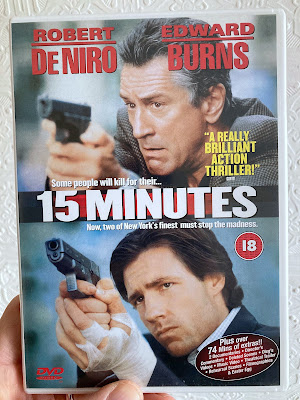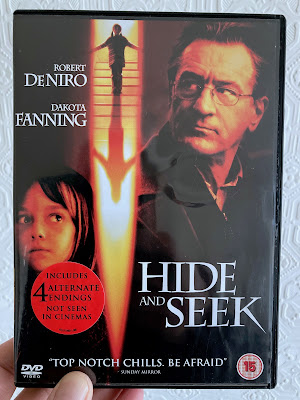A fundamentally misconceived thriller that somehow stars Robert De Niro. It’s an extremely heavy-handed satire about fame and the media that fails on multiple levels.
Two eastern European criminals arrive in New York City. (They are portrayed in a crassly simplistic, racist manner.) The pair want to be famous, and will commit murder to achieve that. Meanwhile, a detective (De Niro) and a fire investigator (Edward Burns) team up to catch them.
There are lots of unexpected twists – not because the film is well-plotted, but because it’s a sprawling mess. Certain threads are never resolved, such as the fate of Vera Farmiga’s character. She’s meant to be the love interest, but she’s quietly sent away rather than being allowed to develop her relationship with Burns’ character.
The biggest flaw of all is the two criminals, who are woefully one-dimensional and presumably intended to be semi-comedic (the tone of the film is especially uneven). One of them video-tapes everything they do, thereby incriminating them. Maddeningly, the film presents some of the action through their camera footage – a gimmick that very quickly wears thin. This camcorder view of the violence also seems like exactly the sort of sensationalist rubbish the film claims to be satirising. It’s way dumber than it thinks it is.
There’s also a silly plot about a true-crime TV show presented by Kelsey Grammer (of Frasier) that feels like a different film entirely.
It’s frustrating because De Niro, Burns and Farmiga are all on good form, and some of their scenes are highly watchable. It’s as if director John Herzfeld sub-contracted some of the work, so jarring and uneven are the various different kinds of film clumsily cobbled together for the final edit.

















































